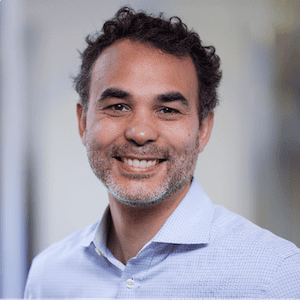-
Four Ways to Tackle Weak Competition in Digital Financial Services in Emerging Markets
Everyone loves a digital finance success story - but what happens when a firm's dominance gets out of hand? That's the issue in many emerging economies, where powerful players and extreme consolidation have raised the risk of abuses of market power. Simone di Castri and Ariadne Plaitakis of BFA suggest four ways policymakers and regulators can level the playing field.
- Categories
- Finance, Technology
-
From All-Inclusive to Socially Inclusive: Travel and Tourism’s Big Shift is Under Way
Tourism is one of the world's largest industries – but how can it best be leveraged to move nations from poverty to prosperity? That was a key question at the recent "Global Conference on Jobs & Inclusive Growth: Partnerships for Sustainable Tourism," organized in Jamaica by the UN's World Tourism Organization. NextBillion was a media partner at the conference, and we share some major themes (and a few controversial remarks) ranging from the impact of the sharing economy and Airbnb, to the problems with building "five-star hotels in three-star communities."
- Categories
- Social Enterprise, Technology
- Tags
- employment, research, tourism
-
Soldiering on in Solar: Why the ‘Investable’ Deals Debate isn’t the Whole Story
An ongoing debate on NextBillion in 2017 has been the extent to which impact investors should steer clear of the "hype cycle" surrounding off-grid solar providers, particularly in Africa. But after a recent trip to Tanzania where he met with several solar entrepreneurs, WRI's Sanjoy Sanyal argues that now is precisely the time to push forward. He explores why genuine, impact-seeking investors need to look ahead of the current incumbents and support local entrepreneurs.
-
The Clear Blue Water on the Other Side of the Digital Divide
Digital financial exclusion represents both a development challenge for poor customers, and a missed opportunity for providers, says MicroSave founder Graham Wright. While providers fight for a share of the most profitable and easiest-to-reach markets, they often overlook the vast commercial potential of lower-income communities – in territory that is largely not competed. Wright explores how to tap into this "fiercely loyal" market.
- Categories
- Finance, Technology
-
Investment = Inclusion: Can Fintech, With a Boost from Investors, Level the Playing Field for the Unbanked in Africa?
Fintech – particularly mobile finance – is increasingly vital to Africa's economic growth. But despite the continent's impressive mobile money penetration, much of its population remains unbanked or underbanked. That’s why it’s so encouraging to see another trend developing in tandem with Africans’ embrace of fintech: namely, investors’ embrace of African fintech companies. Iftin Fatah at OPIC explores why more investment means more digital financial inclusion.
-
‘Stealthy’ Saving: Building on Payroll Credit to Automate Savings
Basic savings accounts are essential to helping people build assets, and to establishing their relationship with financial institutions. But customers often fail to open or use these accounts – even when they have the money and the intention of saving it. Acreimex, a savings & credit cooperative in Oaxaca, Mexico, worked with BFA to find an innovative, "stealthy" way to introduce savings to its existing payroll loan customers. The results of their pilot program were intriguing.
- Categories
- Finance, Technology
-
Value, Not Volume: Four Ways Entrepreneurs Can Help Restore Trust in India’s Health Care Providers
India’s health care providers are facing a crisis of public distrust, and at its root is the way care is paid for. Most health care is delivered by the private sector, where providers earn based on the quantity of procedures, tests and consultations delivered – whether or not those services make patients healthier. Patients know that this profit motive can lead to excessive and costly care, but most have neither the knowledge nor confidence to question a provider’s judgment. Chintan Maru discusses ways to restore their trust.
- Categories
- Health Care
- Tags
- public health
-
Impact Investing at a Turning Point: Read a Free Chapter of Morgan Simon’s New Book, ‘Real Impact’
Impact investing is at a turning point, says Morgan Simon, managing director of Candide Group and founding CEO of Toniic, in her new book "Real Impact: The New Economics of Social Change." It's preparing for rapid scale, but risks falling short of its ideals and transformative potential. Simon discusses eight pitfalls facing the sector in the book's third chapter – which we’re delighted to offer, for free, to readers of our e-newsletter “NextBillion Notes.”
- Categories
- Investing, Social Enterprise
- Tags
- impact investing










